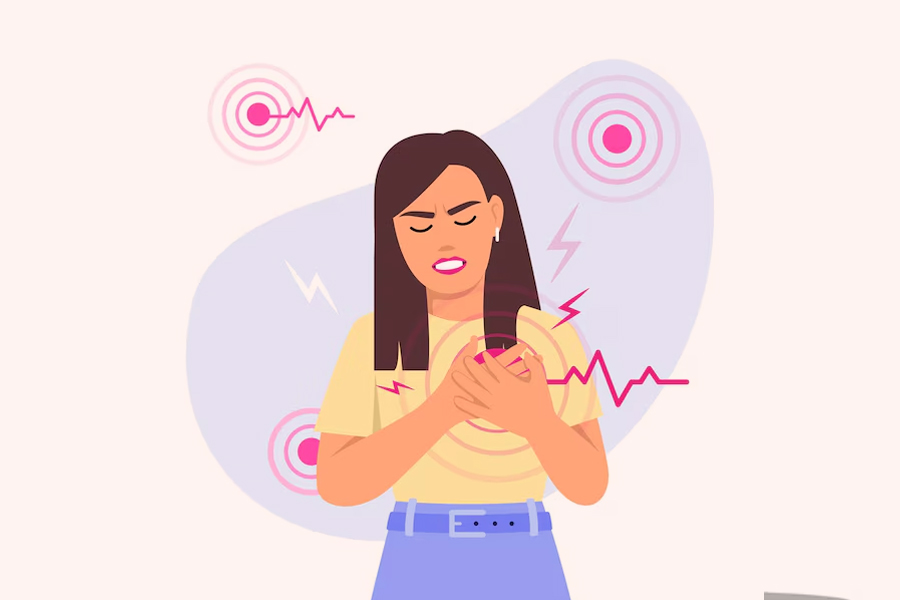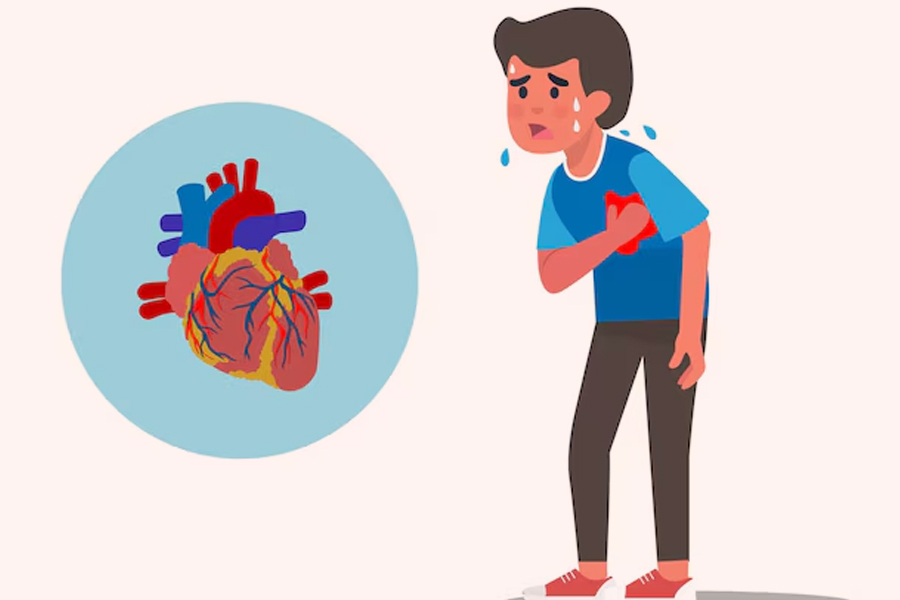Nearly half of all people who suffer a sudden cardiac arrest experience a warning sign about 24 hours before the event. Interestingly, new research has revealed that these early symptoms aren’t the same for everyone, as they can differ based on your sex. According to a recent study published in Lancet Digital Health, most women reported shortness of breath before their cardiac arrest, while the majority of men experienced chest pain.
To understand these differences better and learn what signs to watch out for, we spoke with Dr Gajinder Kumar Goyal, Programme Clinical Director of Cardiology at Marengo Asia Hospitals, Faridabad. He shared valuable insights on how these symptoms show up differently in men and women, and what to look out for to potentially save a life.
5 Ways Cardiac Arrest Affects Men and Women Differently
Cardiac arrest impacts both men and women, but not in the same way. Differences in hormones, biology, and even social behaviour create variations in how symptoms show up, how quickly people respond, and what happens afterwards. Dr Kumar Goyal shares key ways cardiac arrest affects men and women differently:
1. Symptoms Show Up Differently
Men often experience the classic warning signs, like sudden chest pain and collapse. Women, on the other hand, are more likely to have subtle symptoms such as shortness of breath, nausea, fatigue, or pain in the jaw or back. Dr Goyal explains that these ‘atypical’ symptoms can lead to delayed diagnosis and treatment in women, as they aren’t always recognised immediately as heart-related.

2. Age Of Onset Varies
Cardiac arrest usually occurs earlier in men, often in their 50s or 60s. In women, it tends to happen later, usually after menopause, when oestrogen levels drop and they lose the natural heart protection that hormones provide, says Dr Goyal.
Don't Miss:Heart Attack vs Cardiac Arrest: Health Expert Breaks Down Key Differences And Prognosis
3. Differences in Survival Rates
According to Dr Goyal, women generally have lower survival rates following cardiac arrest. This is partly because their symptoms are not recognised quickly enough, leading to delays in getting help. Interestingly, younger women may sometimes have slightly better outcomes than men of the same age, thanks to the protective effects of hormones.

4. Response To Treatment Isn’t The Same
Men and women respond differently to resuscitation efforts and post-arrest treatments. Dr Goyal points out that women are less likely to receive bystander CPR compared to men, which significantly affects their chances of survival and recovery.
Don't Miss:5 Early Warning Signs Of Heart Blockage You Shouldn’t Ignore
5. Emotional Impact Differs Too
After surviving cardiac arrest, women are more prone to experiencing anxiety, depression, and even post-traumatic stress. This can influence their overall recovery and quality of life in the long run. Dr Goyal emphasises that providing emotional and psychological support is just as important as physical treatment for these patients.
Keep reading Herzindagi for more such stories.
Credits: Freepik

Take charge of your wellness journey—download the HerZindagi app for daily updates on fitness, beauty, and a healthy lifestyle!
Comments
All Comments (0)
Join the conversation